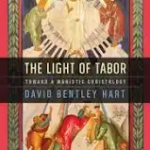Let’s say that angels ruled were associated with the great powers of the ancient oikoumene (the period between Nebuchadnezzar and Nero). This is (perhaps) what’s in view in Daniel 10:13, 20. Jesus establishes the new imperium , and in Revelation 2-3 sends out letters to the “angels” of the churches. I believe that the angels are pastors, so why call them angels? Perhaps Revelation 2-3 is giving us a portrait of the new empire, the oikoumene of Jesus, also ruled... Read more















